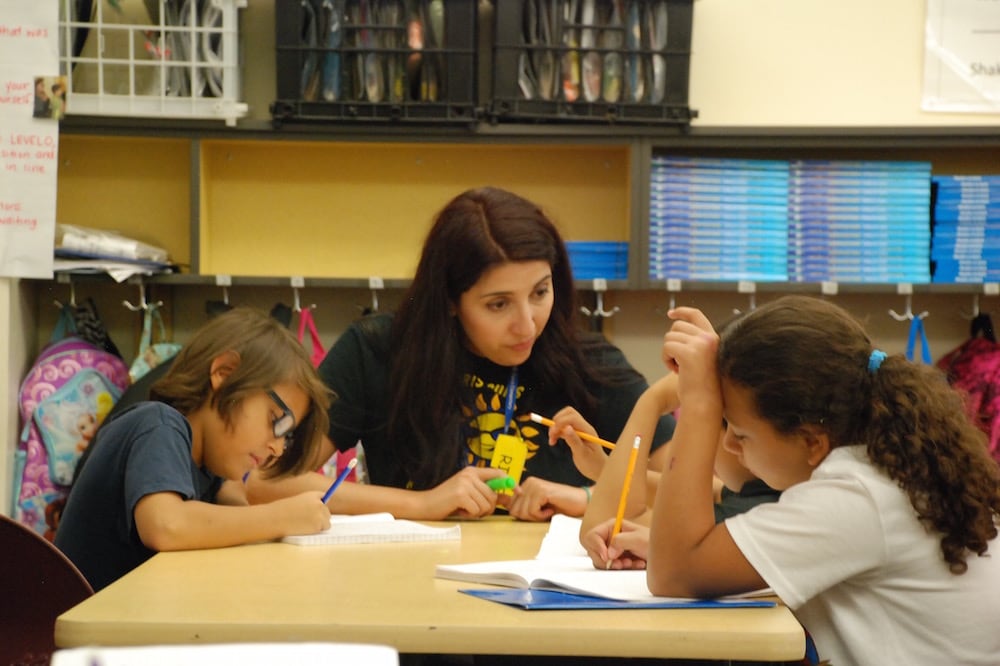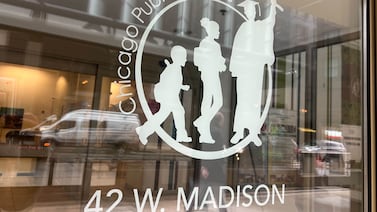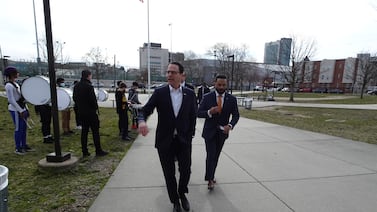Aurora board members Tuesday rejected a recommendation to close two elementary schools as part of the district’s ongoing plans to reduce the number of schools it operates in areas with declining enrollment.
The board voted 4-3 against the recommended plan, which also included creating a new K-12 magnet program.
Superintendent Rico Munn and a facilities committee both recommended closing two small northwest elementary schools, Sable and Paris, at the end of next school year.
Sable has about 370 students and Paris has about 250. Schools in northwest Aurora have lost from 26% to 45% of their enrollment since 2015.
Board members raised concerns about the process that the district used to pick Sable and Paris as the schools to close, given that the schools aren’t actually the smallest schools in their region. The board also criticized the lack of clear and timely communication between the district and families of the schools.
Board members Tramaine Duncan, Stephanie Mason, Nichelle Ortiz, and Vicki Reinhard voted against the plan. Board members Michael Carter, Debbie Gerkin, and Anne Keke voted in favor of it.
Munn said that his criteria does not look at schools individually, but instead considers regions and looks at multiple factors including a building’s condition and its ability to be repurposed, but not a school’s academic performance.
The board asked Munn to return in 60 days with the trade-offs involved in subsidizing all small schools to avoid any closures. He also is to return with a recommendation for alternative school closures in case the board does not want to subsidize small schools. The board additionally asked for an individual recommendation on the new magnet school that was rejected as part of Tuesday’s plan.
Sable Elementary parents spoke to the school board, as they have been doing for months, asking it to reconsider plans to close their school.
Many said they were shocked when they learned that their school was recommended for closure, and many questioned the district’s motives. One mother, speaking in Spanish, said that telling her children the school was closing because there wasn’t enough money to keep it open was unacceptable.
One father said that he’s been displaced time and again since being forced out of his home in Ethiopia years ago, and later from Kenya. He didn’t want his children to endure similar forced changes.
Without family here, he also said that instead of aunts and uncles, his children have their teachers.
“We have nowhere to go to say hi to anyone,” he said. “The Sable elementary school staff members, teachers, kids in general, that’s like a family. If you close down or shut down a school it’s like you’re forcing my family apart.”
Parents from Paris Elementary told the board Tuesday that they were disappointed that the district seemed not to have taken into account the academic turnaround their school had made in the last few years.
Last year the district closed several other schools, and the administration is likely to recommend more closures in coming years as part of its Blueprint APS long-term plan.
Aurora Public Schools faces rapidly declining enrollment on the west side bordering Denver as rising housing costs push many families out, but new developments on the eastern side of the district will require new schools.
Editor’s note: This article has been updated to clarify next steps.
Yesenia Robles is a reporter for Chalkbeat Colorado covering K-12 school districts and multilingual education. Contact Yesenia at yrobles@chalkbeat.org.







